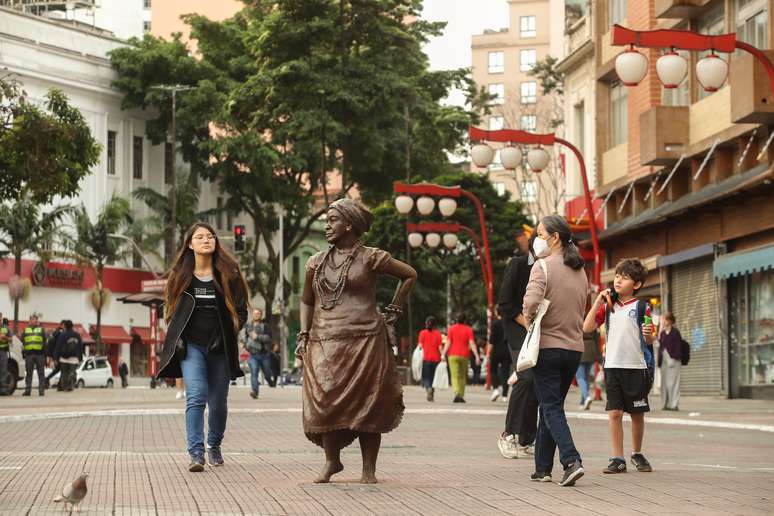To date, none of the child’s classmates or family members have shown signs of the disease.
An 11-year-old girl died on Sunday, aged 26, of type C meningitis Praia Grandecoast of Sao Paulo. She was admitted to Sister Dulce Hospital, but did not survive. The state of vaccination of the child was not revealed.
In a statement, the Municipality of Praia Grande specifies that “to date, no other student or family member of the child has presented any type of symptom that could be related to the disease”.
The ministry also recalls that it has adopted, in light of what happened, measures such as the inspection and cleaning of the school where the child studied, the implementation of orientation actions for parents and students and the provision of all the necessary attention to the family.
What is meningitis?
According to Rodrigo Lins, an infectious disease specialist and consultant at the Brazilian Society of Infectious Diseases (SBI), meningitis is a term used to describe a wide range of diseases that cause inflammation of the meninges and brain parenchyma. Therefore, experts believe that the most appropriate way to refer to the condition is meningoencephalitis.
According to the doctor, inflammation can be caused by organisms such as fungi, viruses or bacteria, which are the cause of the most serious pathologies. “Bacterial meningitis is much more worrying because it progresses very quickly and has a high mortality rate,” emphasizes Lins, who is also president of the Society of Infectious Diseases of Rio de Janeiro (Sierj).
THE meningitis type C, responsible for the death in Praia Grande, is of bacterial origin and is caused by a bacterium called Neisseria meningitidis (meningococcus). According to Lins, this type and type B are the most commonly recorded in Brazil.
What are the symptoms?
The signs and symptoms are similar regardless of the type of infection. They include:
- high fever, one of the most frequent signs;
- very severe headache, which may be accompanied by vomiting in younger children;
- neck stiffness;
- convulsions, in the most advanced cases.
“Since it is a bacterial infection, as the condition worsens, the person may become hypertensive and a change in mental status may occur,” explains Lins.
The doctor also points out that the diagnosis tends to be more challenging in the elderly and young children because they have some difficulty expressing their complaints.
“It’s a very rapidly progressing disease,” he adds, commenting that patients can progress to more severe conditions in a short time. “The central nervous system infection may also be accompanied by a bloodstream infection, which is very serious and can lead to death within hours.”
Transmission
Transmission depends on the type of causal agent. In viral and bacterial cases, the most common, contagion generally occurs through direct contact with the respiratory secretions or saliva of infected people, such as when coughing, sneezing, kissing or sharing personal objects, such as glasses and cutlery.
Prevention
Vaccination against meningitis is carried out with vaccines that protect against the different meningococcal serotypes (A, B, C, W and Y).
In Brazil, the National Immunization Program (PNI) includes two doses of meningococcal C vaccine, administered at three and five months of age, and a booster with the ACWY vaccine at 12 months. Additionally, children between the ages of 11 and 14 should receive a new dose of meningococcal C or ACWY.
There is also the meningococcal B vaccine, available only in the private network.
Source: Terra
Ben Stock is a lifestyle journalist and author at Gossipify. He writes about topics such as health, wellness, travel, food and home decor. He provides practical advice and inspiration to improve well-being, keeps readers up to date with latest lifestyle news and trends, known for his engaging writing style, in-depth analysis and unique perspectives.








